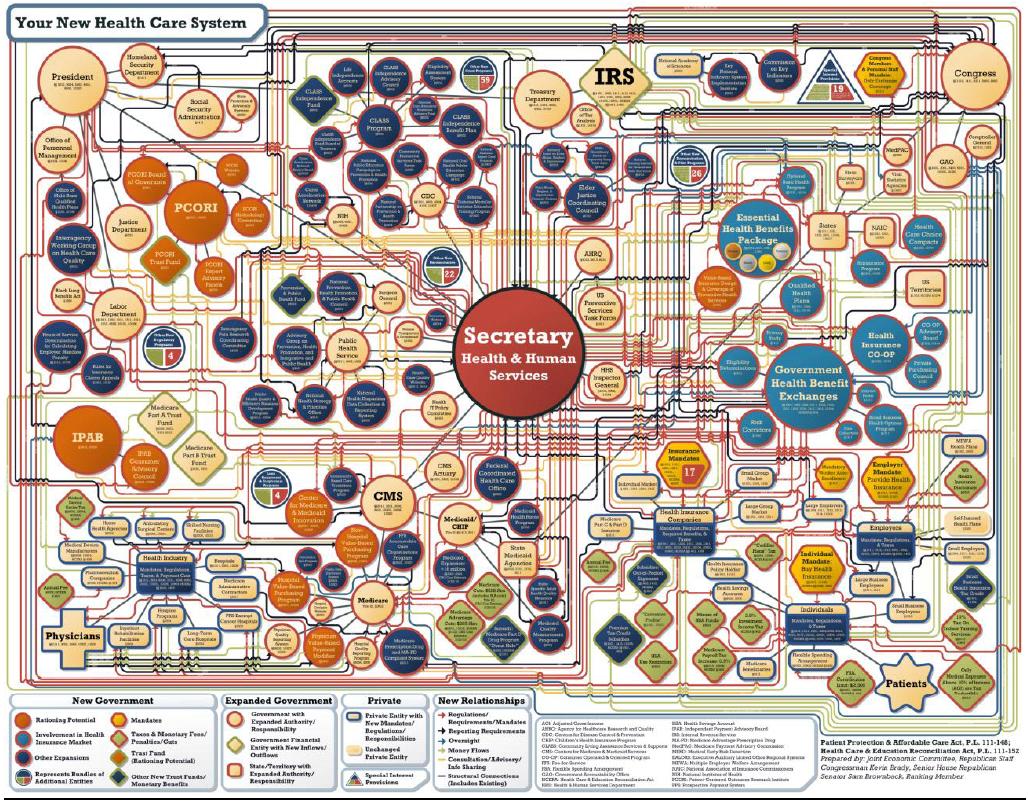The Complexity of Reality
How arrogant people are who think they understand enough about a nation’s economy that they can control it! This thought came to me while thinking about the implicit assumptions progressives make. Two posts back I listed three implicit assumptions of progressives, seldom expressly stated, but necessary for their hunger for more government control. They were:
- Capitalism and free-markets are inimical to the material well-being of the people.
- Ordinary people lack the power to withstand what progressives view as the rapacious oppression of corporations and of the wealthy “1%”.
- Ordinary people lack the necessary knowledge and understanding to cause effective change, even if they had the power to solve their own problems. Therefore, it is the burden of the progressive, university educated nobility to do all the necessary thinking for the common people.
To this list should be added a fourth progressive assumption.
4. Reality is simple enough that educated, intelligent people in government can sufficiently control it over the entire country to do more good for society than harm.
I use the word “reality” rather than “economy” because progressives make this assumption of relative simplicity with other social problems as well. One merely has to think “welfare programs” to know that this is true.
The futility and danger of trying to control any aspect of the economy through government regulation has already been suggested in the posts Why Socialism Does Not Work, The Keynesian-Neoclassical Ideological Conflict (2), and is indirectly implied in the posts The Law Of Supply and Demand, Adam Smith’s Invisible Hand, Ricardo’s Law of Comparative Advantage, and The Law of Marginal Utility. If one were to try to find the posts that discuss the unintended consequences of government interactions with the economy, almost every post that belongs to both the Economic Issues and Political Issues categories would be on the list. Both the futility and danger arise from the great complexity of the economy, and this complexity comes from the subjective, psychological nature of economic value. To fix the so-called “equilibrium” market price accurately requires the psychological interaction of millions of people as they act in both the roles of producer and consumer. To predict the subjective valuation of some good held by even a single human can be a chancy proposition. To predict the average valuations of a large number of people, when the prices of some goods will be dependent on the prices of the materials and the labor required for its production, is a practical impossibility.
Subjective human values are also important in non-economic problems that government foolishly tries to “fix”. The seminal book Losing Ground by Charles Murray (reference [P2]) examines many ways in which individual human values interacted in unexpected ways to defeat Lyndon Johnson’s war on poverty. The sad fact for progressives is that any government program that depends on accurately predicting the interactions of millions of people is almost certainly doomed to failure.
So with the mind-scrambling complexity of economic and social problems, how do the opponents of the progressives, the conservatives, propose to address these problems? To this question they readily answer, “As little as possible; depend on individuals to solve their own problems!” Depending on how far to the right they are, conservatives would depend on government for very little. The farther right a conservative is, the less power and responsibility he would give to the government. Conservatives hold that individuals generally understand what their problems are far better than government officials.
In cases where individuals can not solve those problems due to lack of resources, conservatives would depend as much as possible on voluntary, non-governmental associations. A very impressive example of such a voluntary association of people with common problems is the Amputee Coalition, whose national conference I have just attended. The members of this coalition use their own assets, both in knowledge and money (some of which is donated by other private individuals), to solve their problems according to their own priorities.
Such an approach is optimal for society in a couple of ways. First, since voluntary organizations are not attempting to solve all of society’s troubles, they can concentrate their efforts on their own, more limited problems. Government officials and bureaucrats on the other hand, would have to disburse their assets over a much larger set of tasks if they are trying to solve all society’s problems. Diluting assets as problems increase necessarily reduces the effectiveness of government action. In addition a government bureaucrat’s priorities are bound to be somewhat different from those of the people most closely involved. A second way a voluntary approach is optimal for society is this: only the people closest to the problem would contribute most (if not all) of the material assets required. People with different sets of problems could concentrate their assets on their own problems. Being closest to their own quandaries, they are in the best position to direct how assets are used efficiently. Efficient allocations of assets mean that the total costs to the economy are minimized.
Only those individuals farthest to the right (i.e. the anarchists) would say that there should be no government. Most conservatives would say that government has roles to play in enforcing contracts and in ensuring public safety through a police force and armed forces. Also, many conservatives would believe government has some role in protecting us from hazardous materials and in protecting the environment. Some conservatives would even say that government could have some role in providing welfare for the most indigent. Of course, a welfare program designed by conservatives would look far different from a program designed by progressives. A conservative welfare program would be much more oriented to incentivizing recipients to make themselves self-sufficient.
It is precisely because of the complexity of reality that conservatives would depend more on decentralized solutions that do not depend on government. Smaller chunks of reality are generally simpler and easier to control than bigger chunks.
Views: 3,012

































